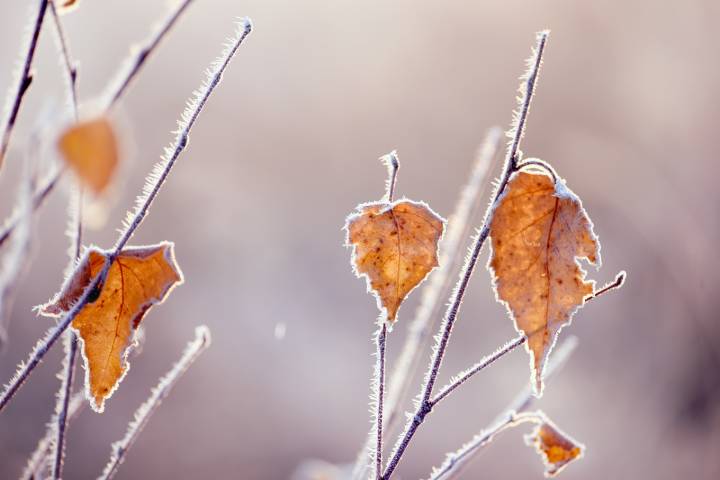
As spring turns into summer, you may notice something confusing in your garden. The beautiful ornamental trees and shrubs that once looked healthy now appear sickly. You might wonder why they’re struggling, why they didn’t bloom, or if they’ll survive. That’s where Tree Tech Inc. comes in. We have the answers and solutions you need. The recent extreme weather, late frosts, lack of rain, and unpredictable temperature changes have taken a toll on our beloved trees and shrubs. In this article, we’ll address common concerns, explain what caused the damage, and guide you on how to help them recover.
Why Does My Ornamental Tree Look Sick This Spring?
The harsh winter took a toll on ornamental trees and shrubs. The extreme cold and frost caused them a lot of stress. These plants usually go dormant in winter to protect themselves from the cold. But when faced with extremely low temperatures and sudden changes, they struggle to stay strong. On top of that, the drought from last year and unusually warm winter weather made things worse. Now, in spring and summer, you can see the damage more clearly. The trees have thin canopies, leaves that are turning brown, and branches that have died. All of this is because of the winter injury and frost damage. This year, Japanese maples and ornamental cherry trees seem to be the most affected by these symptoms.
Why Did My Tree Not Flower?
Trees, such as cherry, pear, and peach trees, rely on specific environmental cues to initiate blooming. These cues include a period of winter dormancy followed by a gradual transition into spring. Unfortunately, the extreme winter conditions disrupted this delicate process. The flower buds may have been damaged or killed by the harsh temperatures, preventing the tree from producing its usual display of blooms. The buds may have withered or died during the winter, resulting in delayed or limited flowering.
Will My Winter-Damaged Ornamental Plant Survive?
Certain trees, like cherry, pear, and peach trees, need specific environmental signals to start blooming. They rely on a period of winter dormancy and a gradual shift into spring. Sadly, the severe winter conditions messed up this delicate process. The flower buds might have been harmed or destroyed by the harsh temperatures, which means the trees won’t be able to produce their usual beautiful blossoms. Some buds might have dried up or died during winter, causing a delay or reducing the number of flowers they can produce.
Proper Care and Treatments for Winter-Damaged Trees and Shrubs
To aid in the recovery of your winter-damaged ornamental trees and shrubs, Tree Tech Inc. offers a range of services that can help restore their health and beauty:
- Fertilization: To help your plants bounce back, it’s essential to give them the nutrients they need. A personalized fertilization plan can restore the vital elements that may have been exhausted during the tough winter period. This will enhance the overall well-being of your trees and shrubs.
- Deep Root Watering: During periods of drought, the stress on already damaged plants can worsen. To alleviate this, deep root watering is crucial. It ensures that the roots receive enough moisture, which encourages new growth and aids in the recovery from winter injury. This technique is especially advantageous when natural rainfall is insufficient due to dry conditions.
- Insect and Fungal Prevention: Plants that have been damaged by winter are more susceptible to pests and diseases. To protect your trees and shrubs and aid in their recovery, it’s important to establish an integrated pest management program. This includes preventive treatments for insects and fungi, which will help shield them from additional damage.
- Pruning and Deadwood Removal: Removing dead and damaged branches is essential for both the aesthetics and the health of your landscape. Pruning allows the plant to redirect its energy towards new growth, encourages airflow, and reduces the risk of disease or insect infestations.
While it’s true that the winter injury and frost damage have had a negative impact on the health and appearance of your ornamental trees and shrubs, there is still hope for their recovery. At Tree Tech Inc., we are dedicated to helping you rejuvenate your landscape and bring back its beauty. Our team of experts is ready to offer personalized advice, thorough evaluations, and the necessary services to nurture your plants back to health.
Don’t let temporary setbacks discourage you from achieving a flourishing landscape. Take advantage of our diverse range of services, including fertilization, deep root watering, and comprehensive prevention measures against insects and fungi. Together, we can assist your trees and shrubs in overcoming the challenges posed by a harsh winter and restore their vitality.
To learn more about our services or to schedule a consultation with our certified arborists, call us today. Let us be your trusted partner in rejuvenating your landscape and ensuring its long-lasting beauty.
Restore Your Landscape’s Health and Beauty Today!
Call us now to schedule a consultation with our certified arborists and explore our comprehensive range of services. With our expertise and dedication, your ornamental trees and shrubs will recover and thrive once again.
Recovering Your Landscape: Understanding Winter Injury and Frost Damage on Ornamental Trees and Shrub in Eastern Massachusetts
Also Serving Rhode Island
Boston | Worcester | Cambridge | Brockton | Quincy | New Bedford | Fall River | Newton | Foxboro | Framingham | Plymouth | Attleboro | Taunton | Hingham | Needham | North Attleboro | Norton | Easton | Franklin | Walpole | Dover | Westwood
Providence | Warwick | Cranston | Pawtucket | Newport | Woonsocket | Cumberland | Coventry | Newport | Johnston | North Kingstown | Bristol | Portsmouth
Home » Recovering Your Landscape: Understanding Winter Injury and Frost Damage on Ornamental Trees and Shrub



